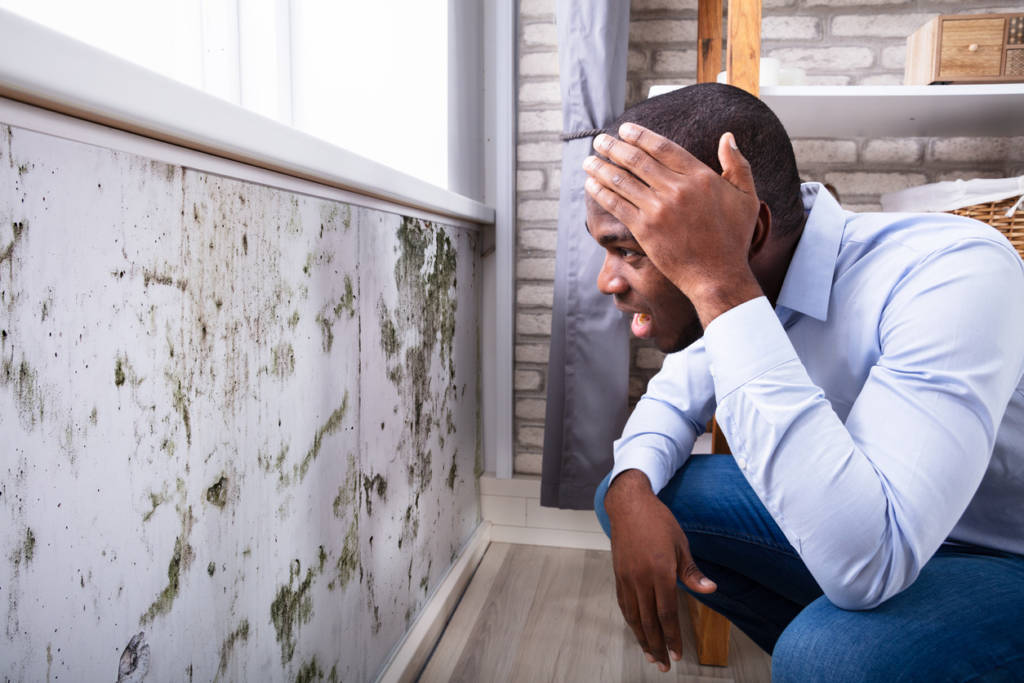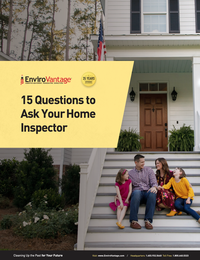
Congratulations — you’re about to purchase a new home! But the inspection turned up mold, so now what?
It’s not uncommon to find mold during a home inspection, but it does generate a lot of questions, and can prove costly. Is it your responsibility to remove the mold or the homeowners? And is there ever a time when you should reconsider a home because of mold?
In this guide, we’ll explore how much it costs to remove mold from a home, how it can affect the value of a home during a sale, and what to do if mold turns up during an inspection.
Mold Review 101
First, let’s review the basics: Mold is a type of fungus that needs moisture to thrive, so you’ll typically find it in places where water can enter the home or where condescension can occur within the home, such as basements, bathrooms, and attics. But that’s not to say mold is limited to those areas. You can find mold practically anywhere in and around your home — including the kitchen, living room, bedroom, roof, and ductwork.
The most common types of mold types found in New England homes are:
- Aspergillus/Penicillium: These two types of molds have very similar structures and are commonly found on mold reports and listed together.
- Cladosporium: This type of mold is often found within the home, and in high concentrations can be harmful. This is the most common form found in attic mold situations.
- Stachybotrys Chartarum: Also known as black mold, this is a toxic type of growth that typically results from a continuous water leak over an extended period. This type of fungus requires 100% water saturation and constant moisture to thrive — as opposed to other forms of mold that only require high levels of relative humidity.
Mold Removal Cost
Costs can range anywhere from $1,500 to $50,000 (for a complete house gut), so it’s best to contact a mold remediation company about your specific situation. It’s important to note that the cost of removal is generally the same no matter what type of mold you have in your home.
Mold Remediation Cost Factors
The cost of removal will depend on two factors: the location of the mold in your home and how much is present. Mold removal often involves the building of containment barriers so that the mold doesn’t cross-contaminate other areas of the home when being removed. Creating these isolated work zones adds to the overall cost but is a critical step.
Mold Inspection & Testing Cost
Most types of mold are black, green, or gray. If you can see the mold, regardless of its color, contact a reputable mold remediation company. Some may come out and inspect the area free of charge.
If you suspect you have mold — or you don’t have any visual signs but suffer from allergy-like symptoms — you can opt to hire a certified mold inspector. This expert will conduct scientific air sampling and collect samples to be analyzed in a lab. You aren’t required to go through a mold inspector first, but it can be helpful to do so if you don’t see any visual signs of growth.
The typical cost is for air sampling is anywhere from $500 to $1,500 depending on the extent of the survey.
A Home Inspection Found Mold — Now What?
Looking for mold is a typical part of the home inspection process, and since mold is common in homes and buildings, you shouldn’t be too surprised if it comes up. But it can be frustrating and a deterrent for some buyers, depending on the severity of what the inspector finds.
First, it’s best if you’re able to join a home inspection in person — this way you can see any suspected mold firsthand. Even if you can’t attend the inspection, the home inspector will generate a report — typically within a few days. This is important for a buyer because there is often a specific window in which you can have an inspection and provide the seller with requests for improvements.
The home inspector will likely note deficiencies in the report, such as any areas of suspected mold, and many will also include pictures with arrows to point out specific places.
If mold, or suspected mold, is found during a home inspection, you’ll want to confer with your real estate agent for the best course of action. You can contact a mold remediation company for a removal cost quote.
Depending on how much mold is present and the state of the housing market, you can attempt to negotiate with the sellers. They can either take care of the mold themselves (with a company you recommend), or you can re-negotiate the price, considering the amount of money you’ll have to spend on the mold removal.
Either way, it’s important that all mold be removed before you move into a new home.
How Mold Can Affect the Value of a Home Sale
As we’ve mentioned, mold can affect the value of a home sale, depending on a few factors. In a hot seller’s market, the presence of mold might not be enough to sway the value, although an appraiser will have the final word. Some buyers may accept the cost of removing mold themselves without attempting to renegotiate. In some cases, lenders may require that the mold situation be addressed prior to closing.
It also depends on how much mold is present. A small amount found in a bathroom is much less likely to affect the value of a home as opposed to widespread mold in the attic.
Does Homeowners Insurance Cover Mold?
The short answer — it depends. As Investopedia explains, mold coverage isn’t always guaranteed by your policy and is only covered if it’s related to a covered peril — in other words, damage in which you can file a claim.
According to Forbes, “usually mold, mildew, fungus, or spores will be covered by home insurance if they were the result of a specific problem that was covered by your policy. An example would be water damage from a burst pipe that then leads to mold.”
Typically, homeowner’s insurance won’t cover mold if the damage was caused by leaks that weren’t repaired, moisture or water from construction, poor repairs, and normal wear and tear.
Should You Buy a Home With Mold?
If a home inspection turns up mold, does that mean you need to forgo your potential home purchase? Probably not. If the source of the moisture issue can be resolved, the only questions to ask are:
- What’s the cost of remediation?
- Who is responsible for the costs?
Since it’s best to remove all types of mold before you move in, you may need to factor the removal process into your timeline.
Questions About Mold? We Can Help!
We understand that a home will likely be the largest financial investment of your life, which means you want to make sure you do it right. As an industry leader with more than 35 years of award-winning experience, EnviroVantage specializes in indoor air quality (IAQ) improvements, mold remediation, asbestos abatement, duct cleaning, and more. We have helped thousands of buyers and sellers eliminate obstacles that were discovered during a home inspection — including mold.
If you have any questions, or you’re looking for a mold removal quote, contact us, and we’ll be in touch!

Are you ready to buy or sell your home?
Whether your offer has just been received or you’re thinking about putting your house up for sale, consider these 15 important questions to ask your home inspector.

Questions?
We’d be happy to answer them — and talk about how EnviroVantage can support your next abatement, demolition, or remediation project.